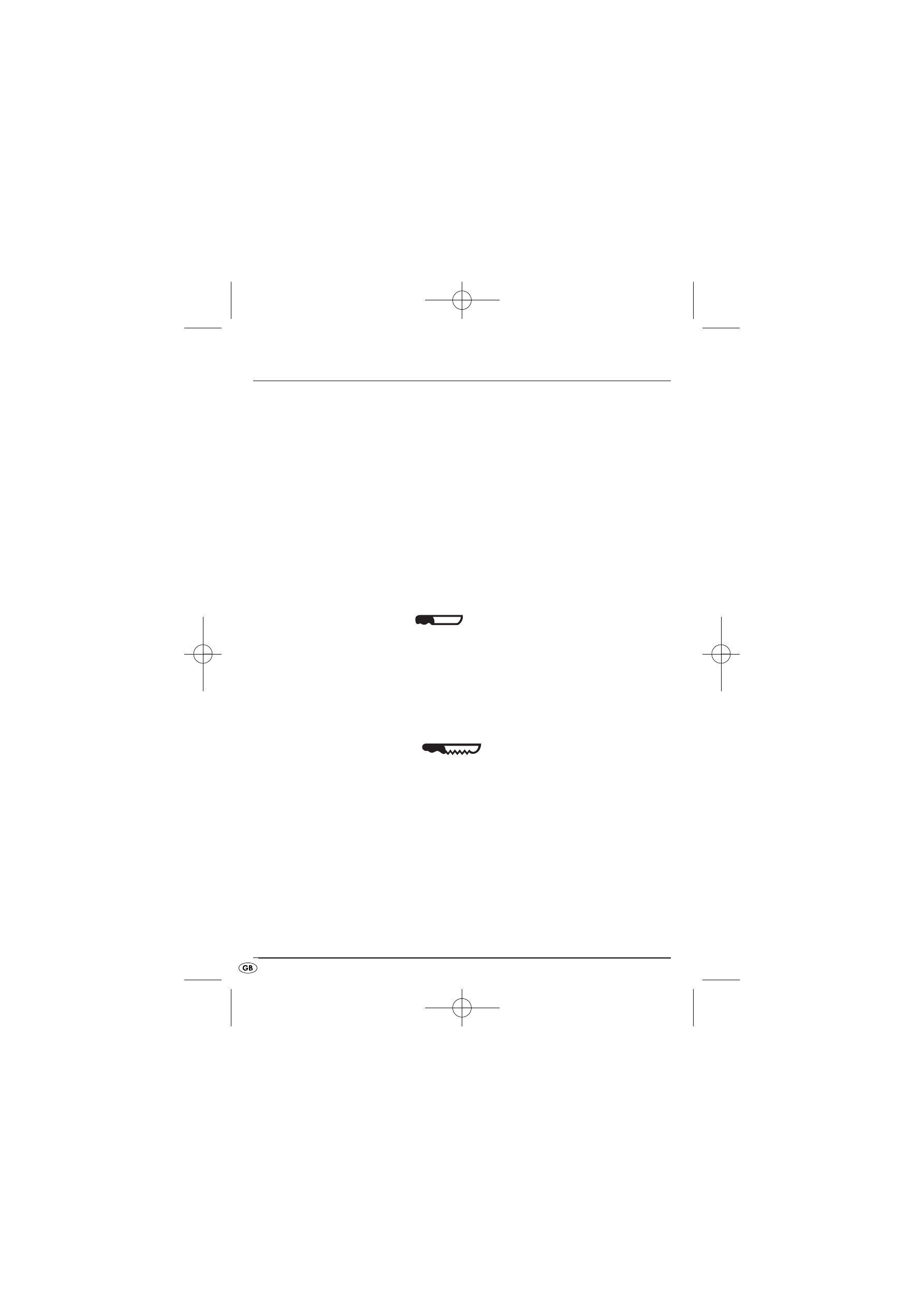Sharpening – Silvercrest SEAS 20 A1 User Manual
Page 49

- 46 -
Sharpening
• First present the blade when the grindstone
t
is revolving.
• Always draw the knife or scissors back, from the blade stop, in an even
movement, not in a repetitive back and forth movement – otherwise the
result will be an uneven sharpening.
• Do not apply any great pressure and always sharpen only clean blades,
so as to avoid a premature wearing-out of the grindstone.
• Always sharpen knives and scissors so that the blade is at an acute angle
to the grindstone (as alluded to in the shape of the opening). Sharpening
at the false angle can destroy any blade.
• After sharpening, remove any possible grinding remnants that may be on
the blade with a moist cloth.
Knife with smooth edge
If you have selected the setting "Knife with smooth edge"
q
(Fig. B):
• Always sharpen knives with a smooth edge on both sides – for this, left
and right side sharpening guides are available.
• In the left guide hold the knife inclined to the left, and in the right guide
inclined to the right, whilst drawing the blade through.
Knife with serrated edge
If you have selected the setting "Knife with serrated edge"
w
(Fig. C):
• Sharpen these only on the side with the serration – the draw through
direction for the knife is dependant on which side of the blade this is on.
The side with the serrated edge must be pointing in the direction of the
grindstone
t
during sharpening.
• In general, serrated blades can only be sharpened up to a point. Knifes
with a fine sawtoothing (e.g. table knives) do not require sharpening.